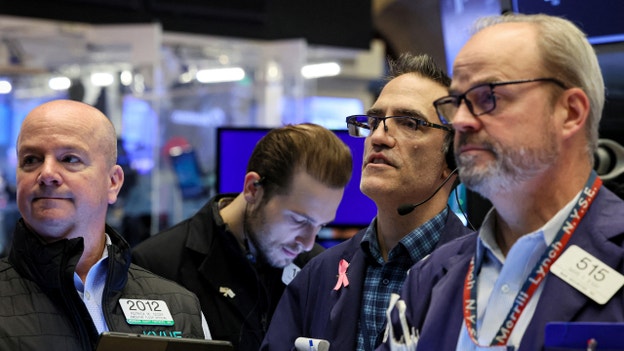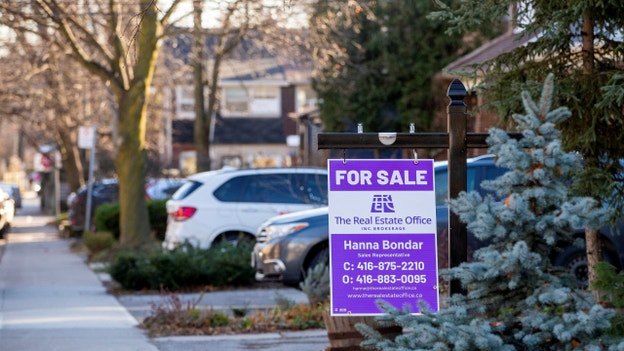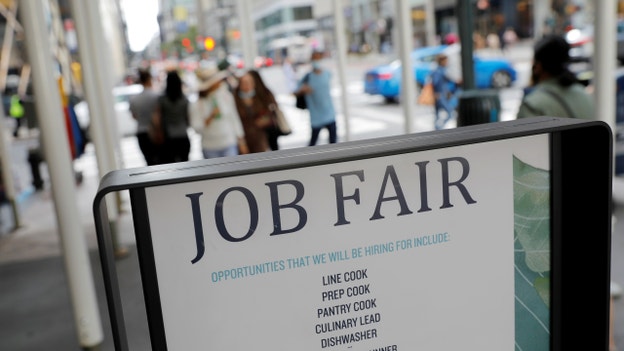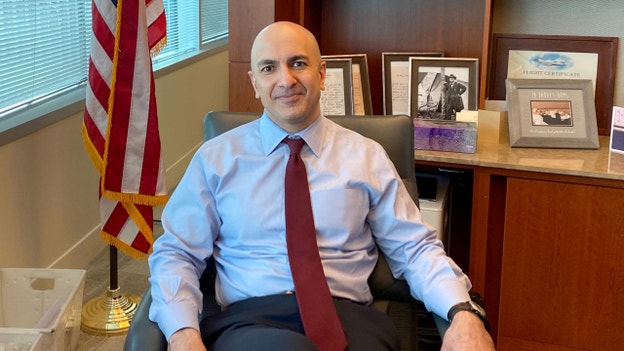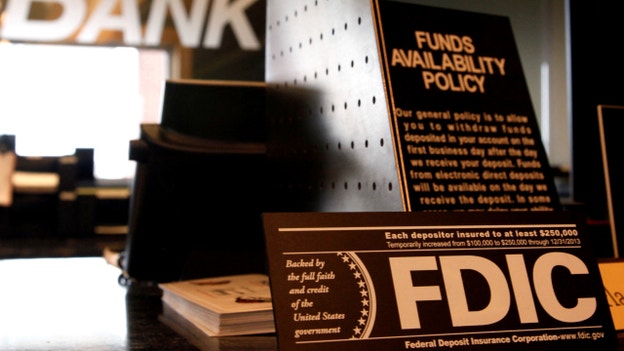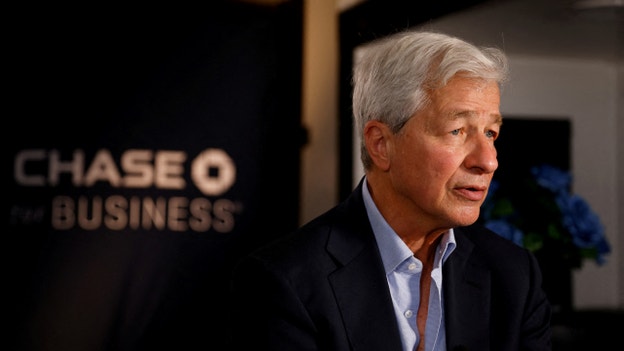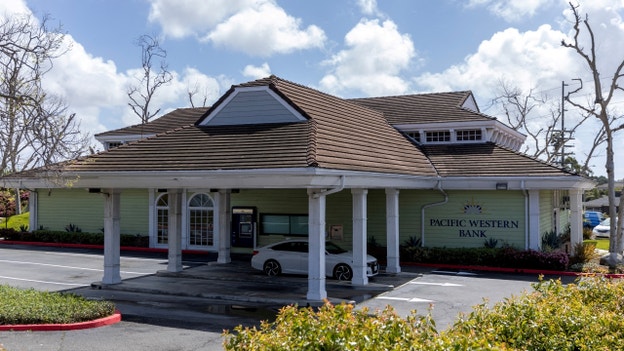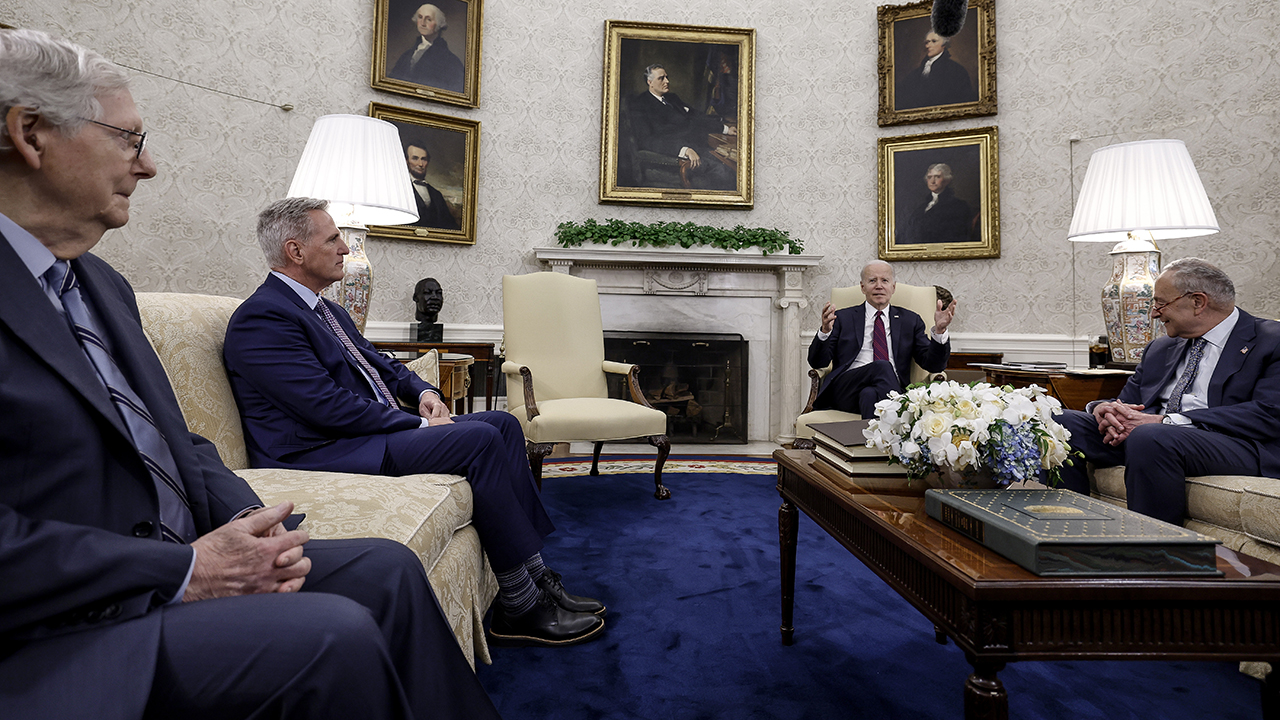Stock Market News: Disney, PacWest shares fall, inflation eases, debt ceiling looms
Prices at the producer level eased for a 10th month, Disney shares tumbled after weaker results in its streaming service, PacWest shares slide after disclosing that deposits are down. In Washington, President Biden and Speaker of the House McCarthy continue wrangling as the debt ceiling deadline looms. FOX Business is providing real-time updates on the markets, commodities and all the most active stocks on the move.
Coverage for this event has ended.
| Symbol | Price | Change | %Change |
|---|---|---|---|
| SP500 | $4,130.62 | -7.02 | -0.17 |
The Dow and the S&P 500 ended lower on Thursday, dragged down by Walt Disney Co, which reported weaker subscriber growth, and declines in regional bank and energy stocks.
Lifting the Nasdaq, shares of Alphabet Inc rose, a day after Google rolled out more artificial intelligence products to take on competition from Microsoft Corp. Microsoft shares fell and were among the biggest negative influences on the S&P 500 and Nasdaq.
PacWest Bancorp shares dropped after it reported its deposits fell 9.5% last week and that it had posted more collateral to the U.S. Federal Reserve to boost its liquidity.
Other regional bank shares fell as well, as the news renewed worries about the industry's health following the recent collapse of three regional lenders.
| Symbol | Price | Change | %Change |
|---|---|---|---|
| PTON | $6.96 | -0.57 | -7.57 |
Peloton Interactive Inc has recalled two million exercise bikes citing the possibility of the seat post breaking during use that could lead to injuries, the U.S. Consumer Product Safety Commission (CPSC) said on Thursday.
The recall piles on more pressure on Peloton, as the company deals with waning demand for its fitness equipment amid an uncertain economy.
This recall involves 2 million of Peloton's flagship Bikes sold from January 2018 to May 2023 in the United States.
Peloton is on pace to surpass it's current closing all-time low set on September 30, 2022 when it closed at $6.93
The average long-term U.S. mortgage rate fell again this week to its lowest level in five weeks, according to weekly data compiled by mortgage buyer Freddie Mac.
The rate on the 30-year fixed mortgage slipped to 6.35% this week from 6.39% a week ago. One year ago, it averaged 5.3%.
"This week’s decrease continues a recent sideways trend in mortgage rates, which is a welcome departure from the record increases of last year," said Sam Khater, Freddie Mac’s chief economist.
The number of Americans filing for unemployment benefits last week jumped to the highest level since 2021, the latest sign the historically tight labor market is cooling off in the face of rising interest rates.
Figures released Thursday by the Labor Department show initial claims for the week ended May 6 surged by 22,000 to 264,000, well above the 2019 pre-pandemic average of 218,000 claims. It marks the steepest level for jobless claims since October 2021.
Continuing claims, filed by Americans who are consecutively receiving unemployment benefits, rose slightly to 1.81 million for the week ended April 29, an increase of 12,000 from the previous week.
An extended period of high interest rates and an inverted yield curve could put more stress on banks, but would be necessary if inflation stays stubbornly high, Minneapolis Federal Reserve President Neel Kashkari said on Thursday.
There is some evidence high inflation "is coming down, but so far it's been pretty darn persistent - that means we are going to have to keep at it for an extended period of time," Kashkari said during an event at Northern Michigan University in Marquette, Michigan.
"The real question is, when is inflation going to come down," he said. "If inflation is going to stay high and it's embedded in our economy, and we have to run tight monetary policy and an inverted yield curve for an extended period of time, that creates real problems for banks of all sizes. We are very aware of that.
"If inflation falls pretty quickly, as financial markets now expect he said, "one might imagine interest rates normalizing, the yield curve uninverting and then the pressure on banks and their deposit bases becomes much much smaller."
Around 113 of the largest U.S. lenders will bear the cost of replenishing the $16 billion hit to a key deposit insurance fund caused by recent bank failures, the Federal Deposit Insurance Corporation (FDIC) said on Thursday.
The bank regulator will apply a "special assessment" fee of 0.125% to the uninsured deposits of lenders in excess of $5 billion, based on the amount of uninsured deposits a bank held at the end of 2022, the FDIC proposed at a board meeting.
While the fee applies to all banks, in practice it would affect lenders with more than $50 billion in assets, which would cover over 95% of the cost, the agency said. Banks with less than $5 billion in assets would not pay any fee.
The levy would be collected over eight quarters beginning in June 2024, but could be adjusted as the estimated losses to the insurance fund change. The extended timeline aims to minimize the impact on bank liquidity and is expected to have a negligible impact on bank capital, according to FDIC officials.
| Symbol | Price | Change | %Change |
|---|---|---|---|
| JPM | $135.75 | -0.73 | -0.54 |
JPMorgan Chase & Co CEO Jamie Dimon said on Thursday bank staff are meeting weekly to discuss the potential implications for clients, contracts and markets of a potential U.S. default.
While he does not expect that potentially "catastrophic" outcome, the "war room" will likely convene daily to discuss a potential default as the U.S. government get closer to running out of cash to pay its obligations, he said.
| Symbol | Price | Change | %Change |
|---|---|---|---|
| JPM | $136.48 | 0.07 | 0.05 |
| XLF | $32.08 | -0.18 | -0.56 |
PacWest shares tumbled as the bank disclosed more information about deposit defectors. In a filing with the Securities and Exchange Commission the company cited events which followed JPMorgan's acquisition of troubled First Republic Bank.
"This event heightened market and customer fears of additional bank failures, including PacWest. Our stock price declined approximately 41% from $10.15 on April 28, 2023, to $5.96 on May 5, 2023. On the afternoon of May 3, 2023, PacWest was featured prominently in the financial news headlines with reports that PacWest was "exploring all of its options and having talks with potential investors and partners". The news headlines increased our customers fears of the safety of their deposits. During the week ended May 5, 2023, our deposits declined approximately 9.5%, with a majority of that decline occurring on May 4th and May 5th after the news reports on the afternoon of May 3rd. PacWest funded this decline in deposits with available on-balance sheet liquidity. As of May 10, 2023, immediately-available liquidity (on-balance sheet liquidity and unused borrowing capacity) was $15.0 billion, which exceeded uninsured deposits of $5.2 billion, representing a coverage ratio of 288%" the filing disclosed.
| Symbol | Price | Change | %Change |
|---|---|---|---|
| PACW | $6.08 | -0.03 | -0.49 |
PacWest Bancorp said on Thursday deposits declined last week and the bank pledged more assets as collateral to the U.S. Federal Reserve to increase its borrowing capacity, sending shares tumbling 20% in premarket trading.
PacWest pledged an additional $5.1 billion of its loans to the central bank on Wednesday, which the lender said resulted in an additional borrowing capacity of $3.9 billion.
During the week ended May 5, deposits declined about 9.5%, the bank said, adding the majority of those outflows happened on May 4 and May 5 after news reports said PacWest was exploring options.
The $15 billion immediately available liquidity is more than enough to cover the $5.2 billion of uninsured deposits at the Los Angeles, California-based bank said.
The looming debt ceiling crisis is posing a big risk to the U.S. economy which is already fielding a number of headwinds and a potential recession.
The PPI Index eased for the 10th straight month, following a similar trend reported in consumer prices, albeit prices for food remain stubbornly high.
Dow component Disney shares fell after the media giant posted weaker results in its streaming service.
Additionally, CEO Bob Iger slammed Florida Governor Ron DeSantis, in their ongoing feud.
Live Coverage begins here
